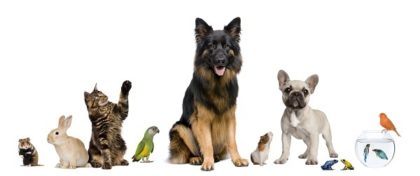
For most people with animals, these pets are thought of as members of the family. Pets are important to their owners, and owners want to make sure that pets are always provided for, even in the event of the owner’s incapacity or death. There are mechanisms for pet owners ensure their pet is always cared for. These include provisions in wills and pet trusts.
First, who will care for the pet after its owner is gone? People are able to name a new caregiver in the owner’s will so there is no confusion on this issue. While pets are considered personal property in Minnesota, and so pets they may be given to a particular person in a will. However, if the pet is a family pet or jointly owned by husband and wife, then the co-owner will likely become the pet’s caretaker. If an owner is concerned about a dispute over partial ownership that may arise following his or her death, another possibility would be to give the pet to the new caregiver before the owner passes away. Once an asset has been given away, the asset is no longer part of the estate and so not subject to dispute under the provisions of the will.
Another option to ensure continuing care for a pet is to set up a pet trust. This is a relatively new development in Minnesota law, as it was only passed in 2016. Just like a trust established for a human, a pet trust provides a way that an owner can put money into an account to be managed by a trustee. That money may only be used for the benefit of the pet. The owner can put specific requirements and conditions on how the money is to be spent. For example, the owner can provide that a particular amount is to be spent on regular veterinary care, while another portion is to be used for grooming. A pet trust may also establish that the trustee of the pet trust is a different person than the person designated as the pet’s caregiver. If the pet dies before the entire amount of the trust is used up, the remainder of the trust will be distributed according to the original owner’s conditions.
We have experience with helping our clients find solutions to protect their pets in the future. Call us today at (320) 299-4249 to talk about your pets and what we can do to help you.































